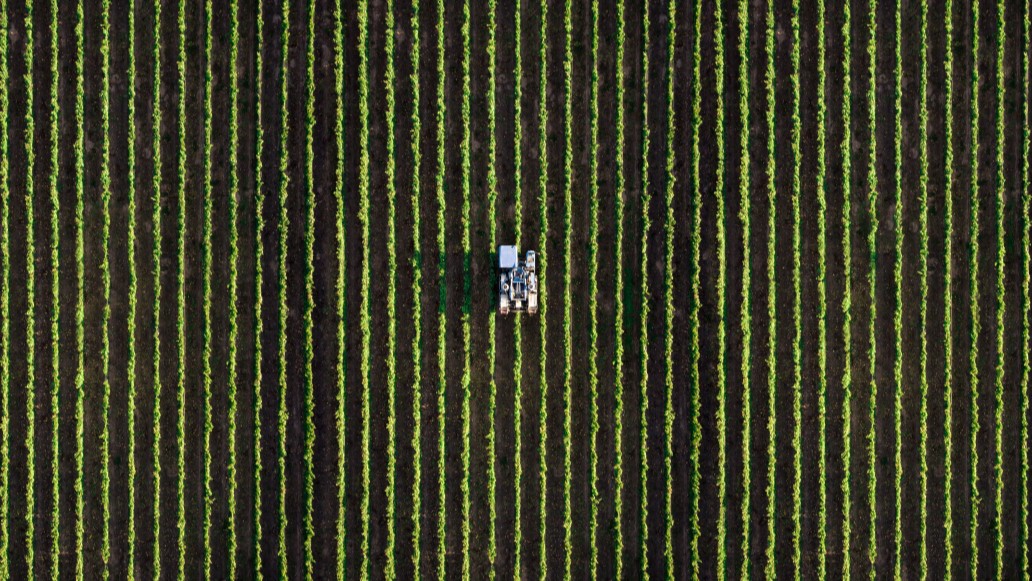The Aussie investors targeting growth in the world’s oldest industry

This article was originally published on Livewire.
Australia’s newest alternatives fund is focused on the intersection of agriculture and venture capital – and there’s big money to be made.
A newly launched Australian alternatives fund is focused on the intersection of agriculture and venture capital, offering investors a unique opportunity to capitalise on the growing demand for sustainable solutions.
While Agri-Food Tech has been experiencing positive returns, it is also an industry that faces a complex landscape of economic, environmental, and social pressures. Despite these obstacles, people understand its value and venture capital firms have been taking notice.
Now, a VC fund manager wants to lead the charge in making the food production system more profitable and sustainable.
Cultiv8 Funds Management has launched a global Agri-Food Tech fund, which invests in companies at Seed stage through to Series B. Its first investor and strategic partner is renowned ASX funds management giant, Challenger (ASX: CGF), via its subsidiary Fidante Partners.
In this Fund Manager Q&A, we’ll introduce you to the Cultiv8 Agriculture and Food Technology Fund through one of its portfolio managers Jonathon Quigley.
Meet Jonathon
Quigley knows more than a thing or two about agriculture. Having grown up on a cotton farm in the Macquarie Valley in the New South Wales central west, he has a deep-rooted understanding and appreciation for the industry.
“Having a personal connection to the sector and understanding the uniqueness of the lifestyle is where all this passion comes from. Ag and food production is a necessary industry and provides many benefits to society,” Quigley says.
This background led to an early career in the commodity markets. Quigley worked in over-the-counter trading, where he honed his knowledge of wheat, canola, and cotton futures, as well as interest rate futures and currencies markets.
In 2017, Jonathon partnered with Malcolm Nutt and Korean-based company SparkLabs Group to establish the SparkLabs Cultiv8 Agri-Food Tech accelerator program, in Orange NSW. In the last five years of the program, they have mentored and helped kickstart nearly 40 start-ups that have gone on to raise over $450 million, which is an amount that jumps every month given the speed of growth for these companies, states Quigley.
Opportunities and Obstacles in Agriculture
While there are attractive profits to be made in farming, the industry is also faced with numerous obstacles. Quigley’s team is looking to tackle these, particularly the ever-growing issue of climate change and the necessity to reduce emissions. “Agriculture is widely seen as a hard-to-abate sector, however, there are a number of clear and obvious solutions that can have a major effect,” Quigley explains.
In recent years, the need to adapt to rapidly changing weather patterns is a theme Quigley has been watching closely. Experiencing severe drought, followed by a multi-year, triple La Nina weather phenomenon, has proved difficult for Australian farmers. Despite this, Quigley sees climate instability as a great opportunity to innovate. “We’re leveraging new technologies such as precision agriculture and data analytics to help farmers navigate extreme weather events,” he explains.
The team have also invested significantly in technology that reduces agricultural emissions, demonstrating their commitment to companies valuing ESG. In this spirit, biodiversity is another focus area for Quigley and his team, which is viewed as a “core” opportunity.
Through investing in these sustainability themes, the fund offers investors an opportunity to put their money into projects that make a positive environmental contribution.
Food, glorious food (and protecting it)
The COVID-19 pandemic has raised the hot topics of food security and imported labour. Prior to the pandemic, farmers relied heavily on thousands of unskilled or low-skilled migrants for labour – an avenue that disappeared during the last three years. Quigley says the shortages created an increased market opportunity for automation.
“Automation and robotics assist farmers in being able to produce the food we need at a price point that makes sense,” Quigley says.
Related to the automation theme, data and connectivity are another area Quigley is closely monitoring. From hooking up the internet across more of regional Australia to providing a way for farmers to automate production, technology will play a significant role in the new fund.
“Technology has always been an integral part of agriculture; however, this is accelerating more than ever, and we see a great opportunity to invest in technologies that foster a more informed and sustainable food sector,” Quigley explains.
More broadly, Quigley views the global food system as an area that cannot be ignored. Food is not, as he put it, “a sector where we can choose to participate in or not”.
Some standout investment ideas
Quigley and his team will review around 300 companies annually, with intentions to invest in approximately 20-30 over the three-year investment period of the fund. And while he hastens to add this fund is still in its early stages, here are two examples of the companies they have already backed:
“We’ve made an investment in a company alongside Telstra (ASX: TLS), GrainCorp (ASX: GNC), and GrainInnovate. It’s a company out of Wagga Wagga called Zetifi, that eliminates coverage gaps by extending existing LTE (4G) and satellite networks in rural and remote areas, effectively creating farm-wide Wi-Fi” Quigley says.
“Investing in Zetifi, means you’re investing directly into connectivity infrastructure which is critical for data-driven enablement on farms and in food businesses,” he adds.
On the emissions reduction theme, Quigley’s team are invested in a company called FutureFeed which uses a seaweed variety ‘Asparagopsis’, as a feed supplement for ruminant livestock to significantly reduce emissions.
“They hold the licence and IP to use this specific variety of seaweed that, when fed to cattle, delivers up to a 90% reduction in methane output and a 10% uplift in production,” Quigley says.
Going forward, Quigley’s other project (the SparkLabs Cultiv8 Accelerator) is launching a program to fast track the transition to net zero and will target outstanding clean technology Agri-Food companies. Up to 10 companies will participate in the first year of the program, with the chosen few going on to make an appearance in the Agri-Food Tech fund.
On growth and returns
Quigley’s passion for Agri-investing is palpable but it’s for good reason. The sector has received a ten-fold increase in investment over the last decade. 2022 was the exception, but only because inflows were so much greater than the average.
But the biggest opportunity of all might well be M&A activity. An overwhelming majority of successful start-ups or companies will end up being swallowed by larger agriculture players.
“Corporates globally are grappling with the task of how to integrate the change they know is required with the resources they have,” Quigley says. “They can’t do it all.”
Exits (be it through M&A, an IPO, or other means) will also be the main source of returns for investors. Quigley does not expect a regular distribution to be implemented.
The Agriculture and Food Technology Fund is targeting a 20% IRR over the fund’s lifetime.
